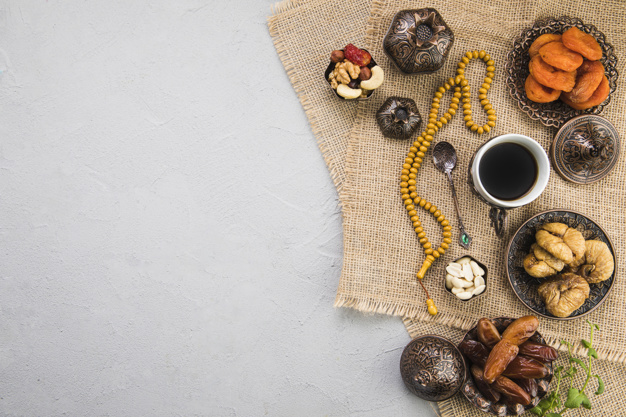Ramadan: Healthy Dietary Tips for muslims
Ramadan is the Arabic name for the ninth month in the Islamic calendar.
It is considered one of the holiest Islamic months.
It’s also one of the Five Pillars of Islam. These are five principles which Muslims believe are compulsory acts ordered by God.
Muslims believe that some of the first verses of the Islamic holy book, the Qu’ran, were revealed to the Prophet Muhammad during the month of Ramadan. Extra emphasis is placed on reciting the Qu’ran at this time.
Fasting is considered to be an act of worship, which enables Muslims to feel closer to God and strengthen their spiritual health and self-discipline…BBC
Healthy dietary habits vital during Ramadan
Muslims who have health conditions such as diabetes, heart disease, gastritis, and hypertension should be extra careful during the fasting period of Ramadan.
Dietitian Norzainora Hamsah from Kuala Lumpur Hospital’s Department of Dietetics and Food Services has advised the importance of a balanced diet for such individuals.
Ms. Norzainora stated that diabetics should control the consumption of food and drinks high in carbohydrates due to their medical condition.
They should limit the intake of the different varieties of sugar, honey and sweetened condensed milk. Other limitations include those items that are high in complex carbohydrates such as cereals, vegetables, starchy foods, dairy products, fruits, and nuts.
“Patients with diabetes also need to know the type of medication to use in preparation for the fasting. They need to get a doctor’s consultation for their diet during Ramadan and on how to administer their medicines,” she advised.
As for those suffering from hypertension, gastritis, and heart disease, Ms. Norzainora states that they have to avoid fatty and salty food.
If one’s diet is not strictly controlled, the patient might be faced with resulting health problems such as rising levels of blood sugar, high blood pressure, and medical issues associated with high cholesterol.
These could skew the patient’s progress in managing the health condition.
Dietary habits to watch
However, Ms. Norzainora has also advised healthy individuals to be watchful of their diet, by restricting high caloric, sugary and fatty food. Especially since delicacies offered for the iftar or evening meal to break the fast usually fall under these categories. They might even gain weight instead of losing it during the fasting period and put themselves at risk of various health issues.
The importance of hydrating oneself during the fasting period is also important. According to the dietician who stressed that eight glasses of water should be consumed to maintain health and prevent the onset of dehydration. (Hema K, 04 Jun 2018) MIMS







Recent Comments